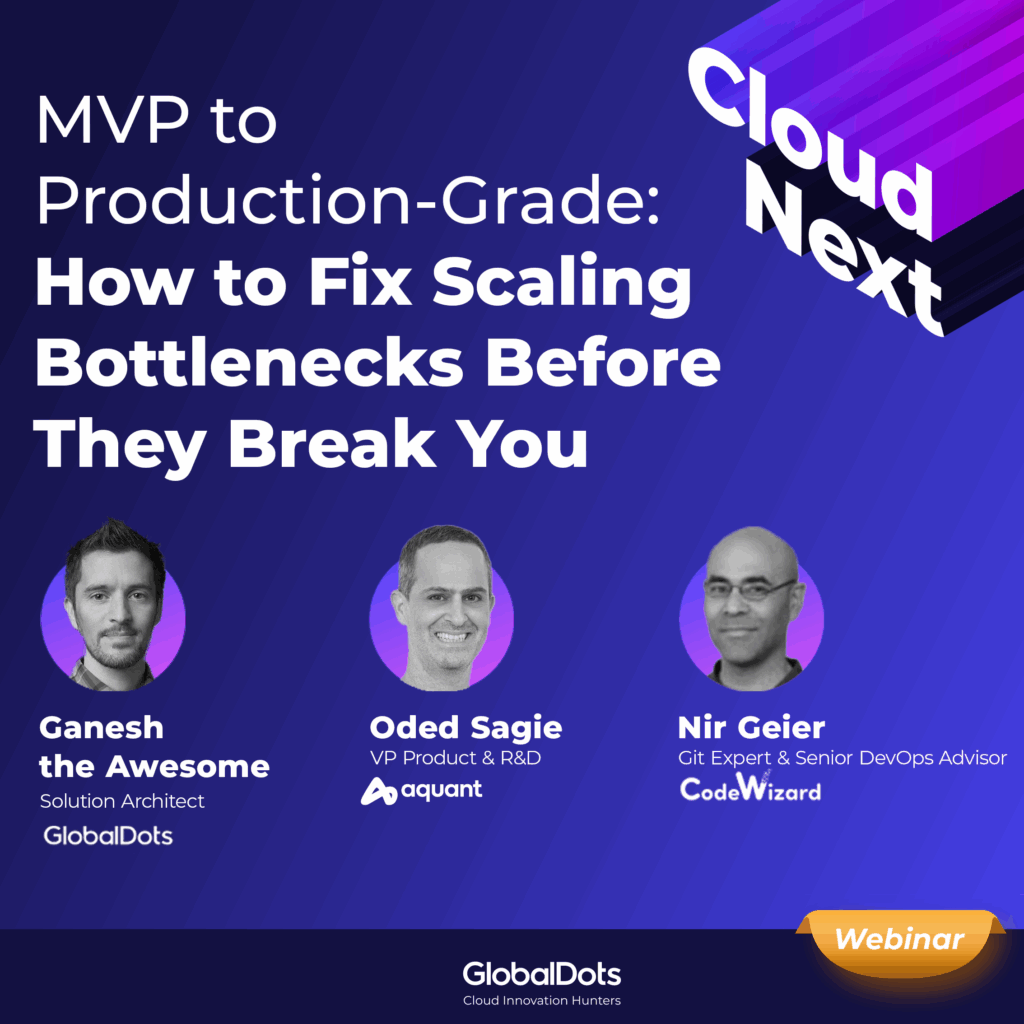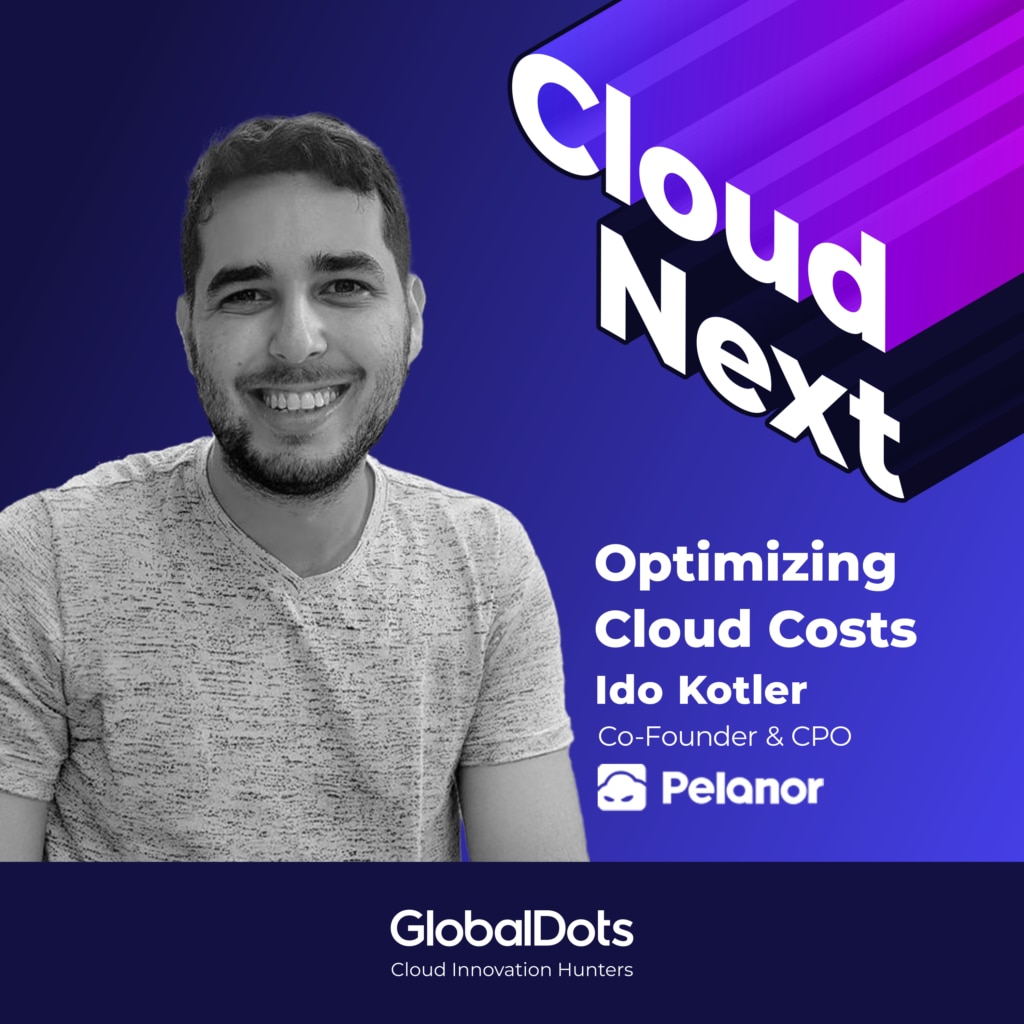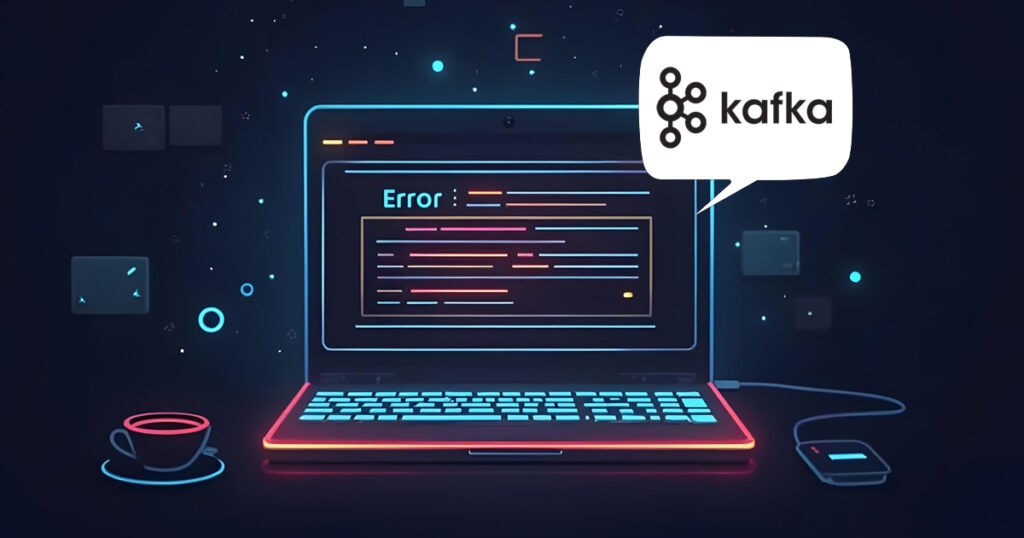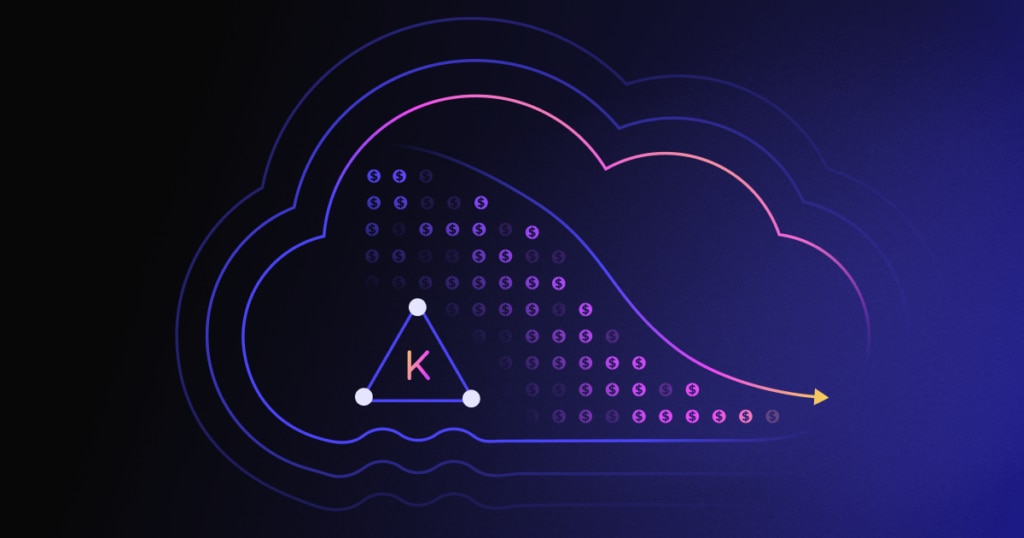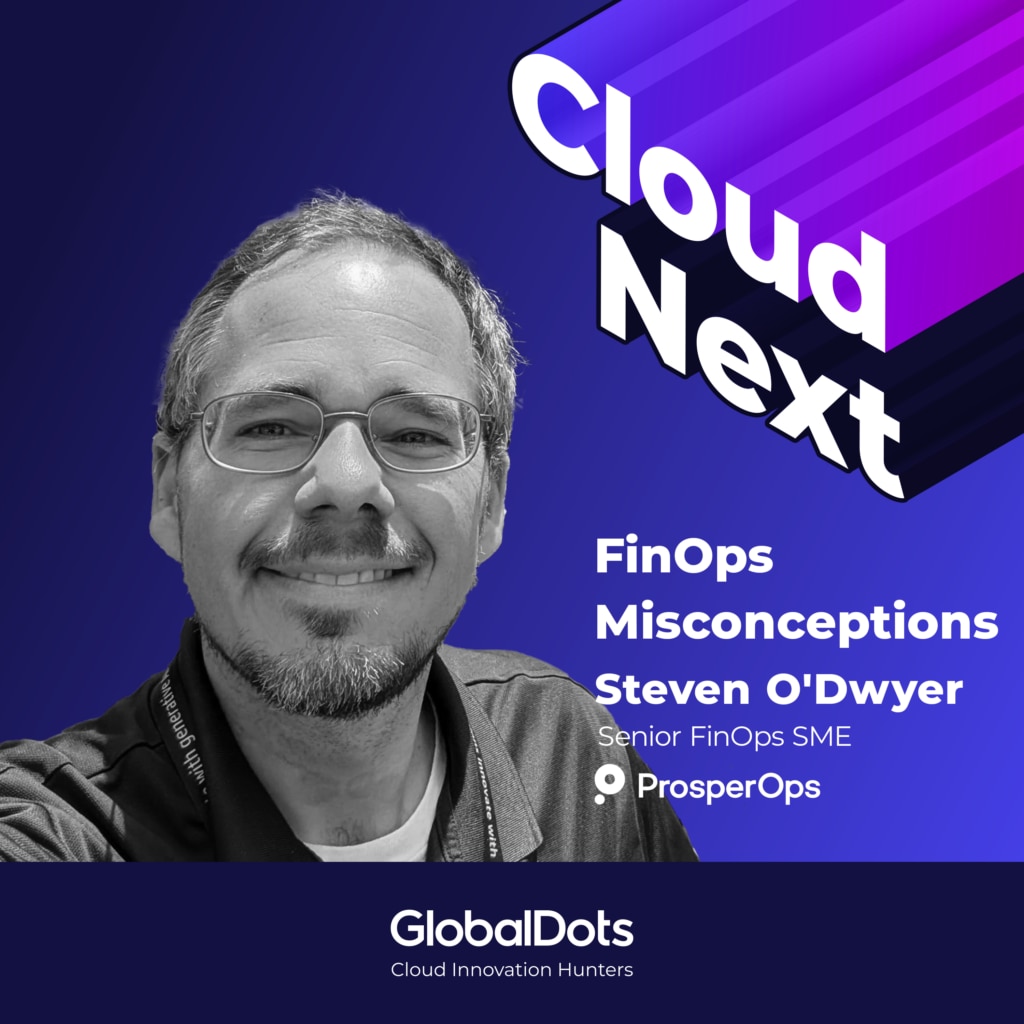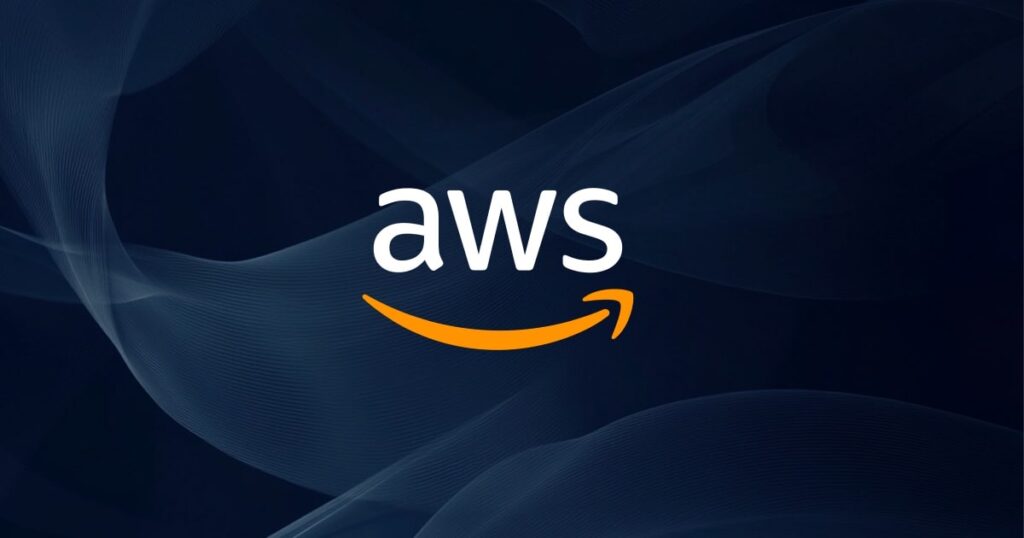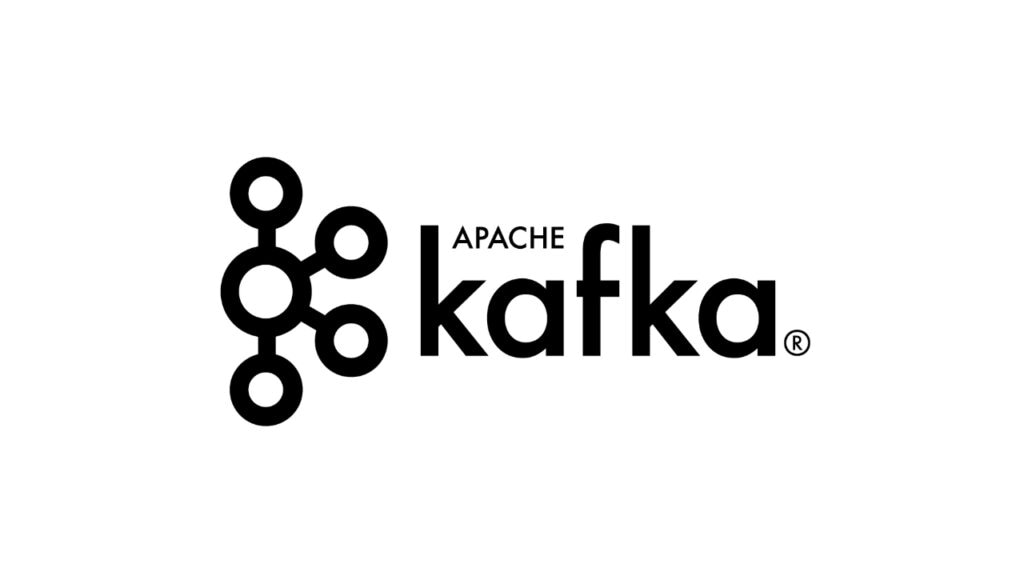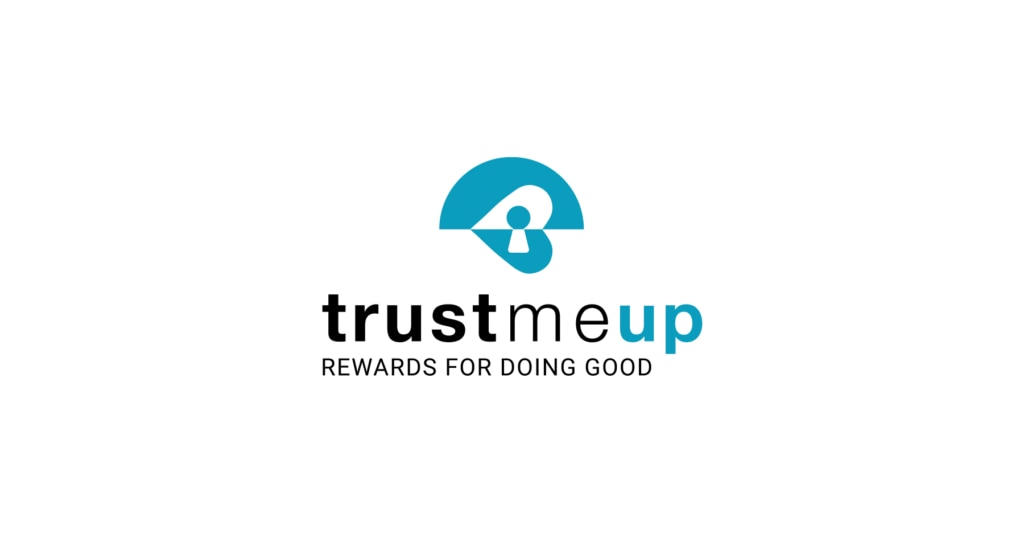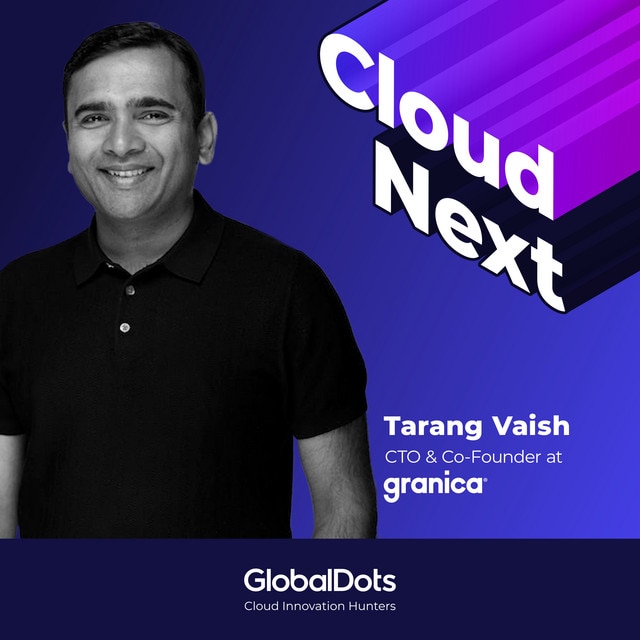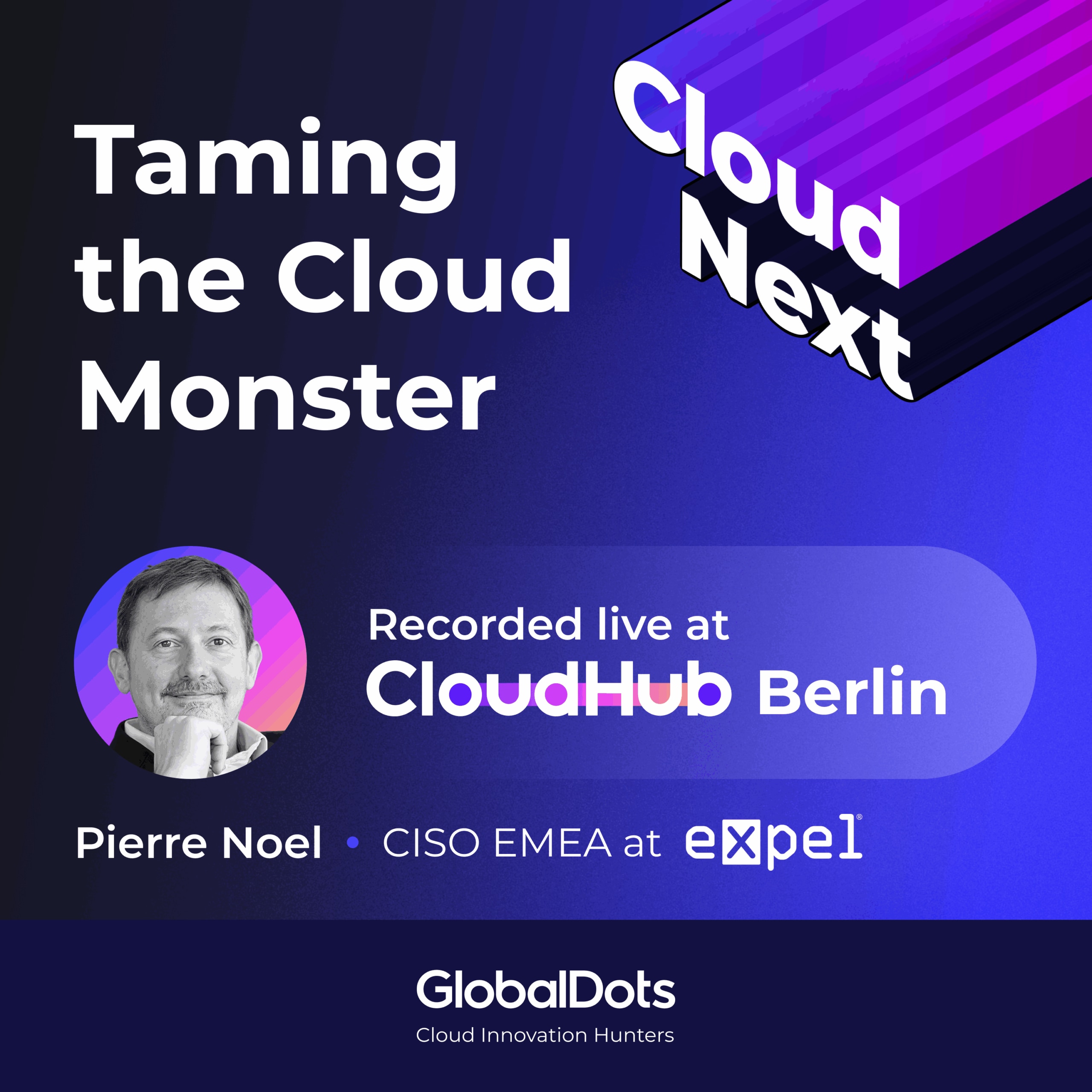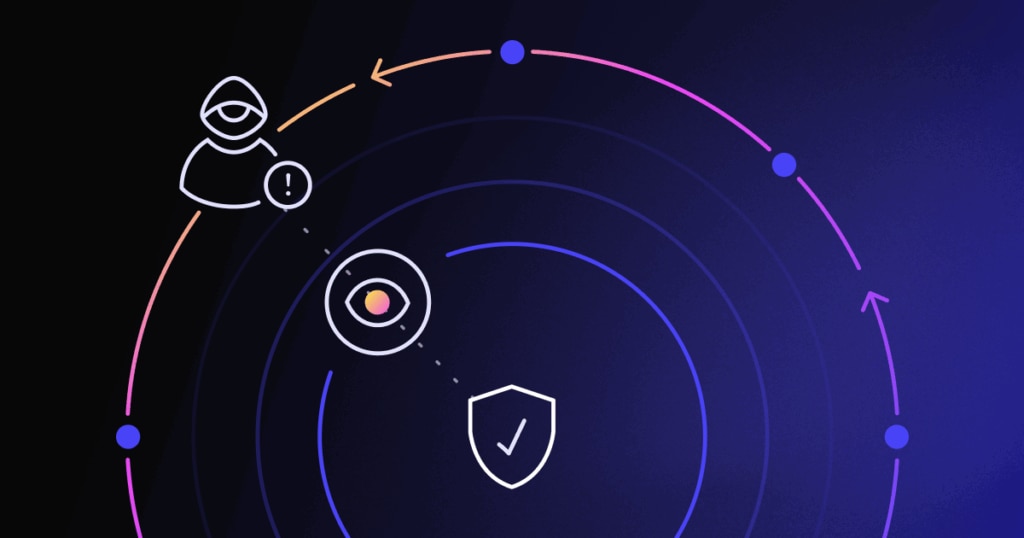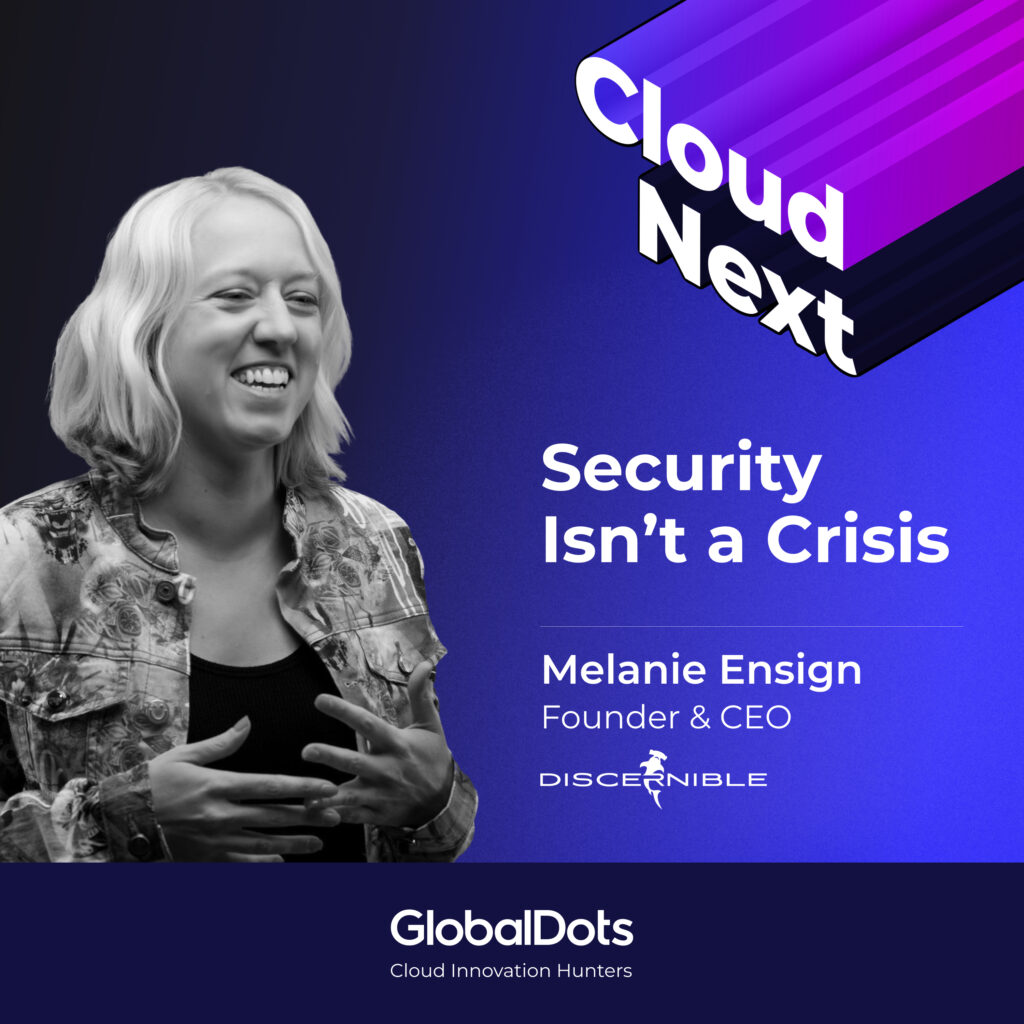This transcript was generated automatically by AI. If you find any mistakes, please email us.
Tomer: Hello everyone, you're listening to Cloud. Next your go to source for cloud innovation and leaders insight brought to you by Global Dots. Cloud costs, ROI and cross team collaboration are pain points every tech leader faces when working with their CFO. At our recent Follow the Money Finance Executive roundtable, we sat down with two CFOs and asked them the same set of questions. Why did we ask them the same questions? Because when you ask two experienced finance leaders about cloud costs, efficiency and working with technical teams, you often get answers that rhyme but never sound the same. First you'll hear from Yaniv Lubinski, a veteran CFO with a deep experience in high growth startups. Then from Erez Storch, CFO at Plainid, who brings a structured, detail driven view on cloud cost control. I'm Tomer Mulvidzon Let's start with Yaniv on why cloud costs are such a critical issue for CFOs.
Tomer: Before we dive in, tell us a little bit about yourself and your role.
Yaniv Lubinsky: okay. My name is yaniv Lubinsky. I'm 51 years old. I'm a CFO, CPA by trade, working most of my career in the high tech industry. Part of it in the VC side, most of it in the operational side with startup hypergrowth companies, located in Tel Aviv. I've been around for a while.
Tomer: What brought you to this profession? I gotta ask. It's not in the written question, so.
Yaniv Lubinsky: I have such a dull answer. My father is a cpa and I guess something I caught up at home. Looks good, looks interesting enough. He was flying a lot, he was working for a multinational company. Looks like, solid with a pinch of, adventure to it.
Tomer: How do you bridge the gap between finance and technical, innovations that you didn't study?
Yaniv Lubinsky: Okay, so most of the world now is technical. Everything is technology technical. It so I guess this is just the era that we live in, so everybody has to develop those skills. Some do better than others, but all of us have basic skills, I think, to go around. I, must tell you that the finance persons are very smart. So often we catch up fast and we know to differentiate between what's important and what's less.
Tomer: What's one challenge you often face when trying to get a clear visibility into cloud tools. And why do you think it's still so hard?
Yaniv Lubinsky: Okay, cloud tools and cloud cost is really a killing issue for CFOs, by the way. It can be a killing issue for companies as well if you don't, if your architecture or the architecture of the product is not good enough. Sometimes you are doomed to failure from day one and you don't even know it because the architecture is so expensive. And if you have a killing product, even if you have a killing product, it will be too costly, to sell on a mass scale or to provide a service on a mass scale. And companies realize that sometimes when they are too far along the way. So this is, the result. But why is it happening? So the symptoms or the issue is that cloud cost is very complicated, partly because it is complicated and you do consume a wide variety of services and partly, I think, intentional. The cloud companies is a dupol, basically. Some maybe will say it's not, but I think at least in the startup world, it is a dupol. Meaning the Dupol companies have a big interest to make things a bit more complicated, less transparent and still, thrive. so those two trends combine together and put a real challenge in front of the finance persons and also the product persons in the companies to analyze and to allocate and to control and reduce cloud costs in an efficient manner. I can give you an example. You have a new product, okay, it's selling good, nice, until you can really segment and analyze and allocate the cloud cost that are generated due to this new product. It's either never or it will take a lot of human resources, time spent and so on to analyze it.
Tomer: But I got to ask about something you said. Isn't the finance, world in general, is complicated on purpose?
Yaniv Lubinsky: No, the finance world has a clear measurement tools. Some can be more complicated than others, but they exist now.
Tomer: I mean the language, when I go to the bank, the language is not a, regular speaking language. You know what I mean?
Yaniv Lubinsky: So I teach my kids from a very young age that finance is important. And I agree with you. Maybe it's the same, I just speak the language. Okay, but if you go to cloud cost, then you have this all new profession, relatively new, that's called DevOps. What is DevOps? It's an invention that people that can invest most of the time analyzing the cloud. Now I wouldn't think that it makes sense. Like if you tell me 10 years ago that you'll have to hire a team of DevOps just to maintain the cloud cost, but to defend the cloud, I would say, wow, it's a revolution. Okay, so revolution costs money. I think that the problem is, as I said earlier, the duple, everybody is riding a Rolls Royce, not everybody needs a Rolls Royce. And we don't have that variety that you can pick and choose from that will fit your cost and will fit your targets. And maybe this will evolve in the next decade or so.
Tomer: have you came across any approaches, even small ones, that help to improve collaboration between finance and tech around cloud?
Yaniv Lubinsky: Yeah. So once again there's a new profession called phenops. Nothing that we had 10 years ago if I recall correctly. So this is exactly on spot of what you're asking. So a new trade is developing. Okay, I speak finance, you speak DevOps. We have a lot in common. What is the common denominator? Let's put a person that is half finance, half DevOps, can speak fluently, technology, language, understand nodes, understand servers, up down this machine, that machine, but also understands financial statements, budgets, how it affects forecasting, how it affects cost, allocation. so this is the interface. If you are not too big of a company, then you will face yourself with a lot of costs that are not necessarily driving you towards your main path of success.
Tomer: But you have any tip for actually the technical guy and how to speak to the finance guy, how to communicate better?
Yaniv Lubinsky: No, they are completely stupid. this is a real challenge. The technical guys don't have a tendency to speak finance and I think this is okay. This is the nature of the beast as one may say. You have to be smart, sensitive and develop skills, intercompany skills.
Tomer: Looking ahead to 2025, 2026. I mean what's the mindset or process shift you think companies must make truly to master cloud?
Yaniv Lubinsky: I think companies must control and master the cloud cost. They must invest in it, but not too much, then it doesn't make too much sense, but they must control it in a way that either they bring solutions, alternatives, hybrid solutions, whatever or they're really tight on their usage, understand their usage, know how to allocate it to profitable products, minimize it to non profitable products. I think this is going to happen more and more than just you know, let's go to market capture market share, whatever it cost.
Tomer: Let's imagine for a second a tech guy who needs to go to his cfo, and ask something, some money issue, he's under pressure, he doesn't know how to give him a tip. One way to explain better to his.
Yaniv Lubinsky: Cfo, very simple, roi, return on investment. You should, if you come to a finance person, do your homework as the same as a finance person. Come to speak with a tech guy, he needs to do his own work, explain to him why it is important and what is the return on the investment. Not just nice to have. Not just, hey, we need it. Not just hey, it's easier. I don't know, whatever. It works all night. I never checked it. And so on. Explain the rationale. Finance persons are, the persons on this earth that speak rationale. And we are always surprised that we are a minority. Most of us don't speak rationale, despite what we learn in universities and so on.
Tomer: if you could go back in time, give yourself one piece of advice as a starting cfo. It's your first day at job. What would you tell yourself?
Yaniv Lubinsky: I think that good CFOs know how to reach beyond finance in a, constructive way. And this would be probably the biggest advice. Most of the CFOs start as gatekeepers because this is what they are trained. But this is not helpful for being a good cfo. It's helpful if you work for the government or for the tax authority. But if you work for a company, you don't need to be a gatekeeper. You need to be very savvy on the business and always speak, constantly have dialogue with other departments. Product would be probably the first one to start with.
Tomer: You need to enable the always enabling.
Yaniv Lubinsky: Not explaining why it can't be done, always explaining why it can be done. Always sharpen the discussion towards roi. And then also the organization starts to understand and not only dream or not only do things because they can, but do things because it matters and it brings value. I think this would be my main advice, but there's a way to go. I think to give it to a young person might not be that helpful. You need to be mature sometimes. It's a process.
Tomer: Right fast. Ah, quiz now. Okay.
Yaniv Lubinsky: Yeah.
Tomer: What's one finance metric you care about more than most people have realized?
Yaniv Lubinsky: Oh, it really depends on the business. I don't have a killing answer. Arrangement churn. Super important. there are some internal ones. I don't take you into our internal business.
Tomer: What's your all time favorite movie or book?
Yaniv Lubinsky: Wow. Book. John Steinbeck, east of Aden. I don't know the name.
Erez Storch: In English I think it's east of Eden.
Yaniv Lubinsky: East of Eden. And movie. Wow. Untouchables is a great one that I saw when I was very young and I was like, wow, amazed.
Tomer: What's something you regularly ask? your tech team that they find hard to answer.
Yaniv Lubinsky: Once again, cost allocation, reasoning, monitoring. Wow, this is an issue guys. Don't you monitor? It's rooftop all the cost of roof. Oh, no. Well. Oh, interesting. We'll check it.
Tomer: Good morning. Yeah, yeah. What's one thing you wish most technical people understood about budgets?
Yaniv Lubinsky: That is important to meet them, that is helpful for the business. It is not just a metric. It's really affecting reality.
Tomer: How do you define efficiency when it comes to cloud or tech investment?
Yaniv Lubinsky: Once again, roi. If the cost makes sense and you sell it in, your service that you're selling is profitable. Yeah, let's double down on it. But if not, let's not pay twice than what we get.
Tomer: Roi. Roi.
Yaniv Lubinsky: I can tell you. Furthermore, in Israel we have a very thriving high tech industry. The main gainers from those industries are the cloud providers because they're in every one of them. If they succeed or fail, doesn't matter, they pay. And the startup companies on this, I need to pay attention to that.
Tomer: what's your all time favorite album or song?
Yaniv Lubinsky: Wow. I would say Alchemy. Dire Straits. I think the most, Alchemy and maybe Sultans of Swing or something that is about Dire Straits. Once again, I think the most influential music themes comes from our youth or teenagers. Teenagers years. And I would say they are one.
Tomer: Of the aspects CFO talking about money for nothing.
Yaniv Lubinsky: I love them. All in love over gold and tunnel of love.
Tomer: Sure. One last question. What's one red flag in cloud spending that instantly catches your attention when the cost goes high?
Yaniv Lubinsky: I think. But if go one notch down is monitoring. And if monitoring is not exist in the satisfying manner to you as a finance person, make sure that it does. All the technical tools are there. Sometimes they are messed up for a reason. Insist. Create the language. You know, don't be a bully. Create the language. Talk, explain, explain, explain. Be always, have great patience about it.
Erez Storch: Great.
Tomer: Thank you very much.
Yaniv Lubinsky: Thank you.
Tomer: That was Yaniv Rubinski bringing a blunt and big picture view on why cloud cost can make or break a company and why finance and tech often clash. We turn now to Eris Torch, CFO of Plain id. With over a decade in finance leadership, ERS brings a structured approach to cloud cost control and moving from reactive to proactive approach. Before we dive in, tell us a.
Tomer: Little bit about yourself, and your role.
Erez Storch: Thank you for having me today. my name is Erez Erez Torch. I've been working at the high tech industry in various financial areas and expertise for the past 18 years. Over a decade of CFO roles both internal and external and in my current position for over the five years or so I'm working as a CFO of plain id, the authorization company. You probably ask yourself what the company does so the company involves in bridging the gap between identities and security. We discover, authorize and manage authorization policy based access control ah with one platform ah, and doing it at scale mainly for enterprises which have lots of data and interactions, digital interactions inside their systems.
Tomer: And what's one challenge you often face when trying to get a clear visibility into cloud costs? And why do you think it's still so hard?
Erez Storch: Well there are several things. First and foremost cloud costs can be cumbersome. I don't know if people are aware but sometimes we get an invoice for instance from AWS like five pages. It's normally usage based and not seed based with lots of SKUs and line items to understand ah so it's hard to predict if you want to build the plan. Second, the price mechanism evolves. Sorry, it means that for several period of time it can change based on several aspects they're doing so again it's difficult to predict and forecast the future outcomes. Second, the allocation for the finance departments mostly we need to allocate accurately the expenses for cost centers like R and D, cost of goods, sales and marketing etc. And with infrastructure, with cloud costs there is the infrastructure layer and additional costs. So just use a regular method can be tricky. So normally what we do today or an advice to other people to do is to look for the underlying key factor to address and to attribute those allocations. For instance we use instances or projects or accounts depending on the bill that we get from the vendors and it helps us to facilitate those allocations. And last but not least is the reserves, instances or saving plans. Again if company want to save and optimize cost, they should optimize by leveraging long period of reserved instances and saving plans. But it's again it's hard to predict because you want to match the revenues and the expenses with the adequate period ah of time to get the right discount and it's hard to predict.
Tomer: Five pages.
Erez Storch: Yeah, five pages.
Tomer: And what's in the five pages? What's there?
Erez Storch: So much to write on queues. I can't imagine everything.
Tomer: I never imagined it would be five pages.
Erez Storch: Yeah, when you drill down it looks like this. Unbelievable.
Tomer: Have you came across any approach, even small ones that helped improve collaboration between finance and tech around cloud spend?
Erez Storch: Yeah, that's a good question. Well we divide the cloud spend into two Subcategories, the subscription software tools and traditional cloud spend like Amazon, gcp, et cetera. For the traditional subscription tools. I advise companies to use today a dedicated monitoring tool or app. We use one, but there are several in the market. These tools can facilitate the monitoring. They can help you track unused licenses that you can deprovision. They can help you track and monitor the actual usage of the subscriptions and the licenses. And they also can conduct security review if you are under SOC2 compliance instead of doing it by Excel. And it gives much more granular data, real live data to see where our the licenses come from.
Tomer: I gotta ask something else. did you ever imagine as a kid that this would be your job?
Erez Storch: Well, honestly, no. I wanted to be a pilot like all of us.
Tomer: So how did you end up being
Erez Storch: I liked finance and business and it's a good, a good thing to, you know, to contribute and do both of them together. And I feel that I really can influence in the job. You start like in the infrastructure layer, let's call it like in the cloud cost, and then you progress to more advanced areas when you become a business partner to the CEO, to the board and you have a lot of impact.
Tomer: Isn't it hard coming from finance, understanding all the technical aspects?
Erez Storch: It may be challenging sometimes but you know, eventually when you come to the company after a quarter or two, you get in touch all the things and all the people. Lots of discussions with the stakeholders, department heads. The first basics is to learn to listen before you come with your own discipline.
Tomer: Yeah.
Tomer: So it's one of our regular questions is if you could go back in time and give yourself one piece of advice starting what would it be? So I guess, listen is the advice. I already got the answer definitely.
Erez Storch: First listen, don't try to change everything in your first 100 days, vice versa. Try to listen, to absorb, to see how the organization operates and then afterwards it's be much more clever and you have much more knowledge to implement new stuff.
Tomer: Looking ahead, to 20, 25, 2026 almost. What's one mindset or process shift you think companies must make to truly master cloud costs?
Erez Storch: I think companies should shift from reactive approach to proactive approach for development, thinkers from the outset, what it means that reactive approach means you get the bill, after the things happen and you try to mitigate and change, for instance, close down use instances or accounts. Proactive approach means that you embed inside the development stage creative thinking and cost Saving methods, with tools and you empower your developers to think about cost optimization, from the outset. So it's a shift. It can be difficult. Okay. It's not, it's not meant to be for all organizations. I think it can be in much more advanced stage when you have much more disciplines.
Tomer: Okay, so before we let you go, a short quiz.
Tomer: Okay.
Tomer: It's a fast one.
Erez Storch: Shoot.
Tomer: What's one finance metric you care about more than most people realize?
Erez Storch: Well, I like the revenue per employee. It's not a regular one, but it's very easy to communicate and to understand compared to your peers and other, companies. For instance, based on fundraisers, based on vertical revenues. And it also help you understand, the breakeven point because Most in the SaaS industry, for instance most companies, expenses are salaries. And it's very easy to understand with revenue per employee. What's going to be the break even point?
Tomer: What's your all time favorite movie or book?
Erez Storch: I really like Forrest, Gump. His way of thinking and optimism about life. It's awesome.
Tomer: what's something you regularly ask your tech team that they find hard to answer?
Erez Storch: committing to deadlines specifically for their development. Well, I understand it's maybe difficult because ever changing dynamics and crisis in startup, but again, we got to commit we want to succeed.
Tomer: What's one thing you wish more technical people understood about your budgets and roles?
Erez Storch: Well, I wish they understand it's not like the scorecard, only for the finance, people. It's a really plan playbook that the company should use in order to achieve their goals in the next year or the current year.
Tomer: How do you define efficiency when it comes to cloud or tech investments?
Erez Storch: as a finance guy, it goes to the bottom line. I mean return on investments and that's it. Okay. You want to see what you, expense and which value it brings to the table. And you want to achieve real value, not just making a check mark because somebody is telling to do so.
Tomer: It's all about the money.
Erez Storch: As the song goes. You know what they say when bullshit walks, money talks. last question.
Tomer: What's one red flag in cloud, spending that instantly catches your attention?
Erez Storch: Well, he has like an internal process of, deactivation of instances. So the first thing I see if they're undeactivated or activated tens that were supposed to be deactivated, it catches right away my eye.
Tomer: Erez, thank you very much for your time and insights.
Erez Storch: Thank you.
Tomer: That's it. That was our talk with Erez Storch and Yaniv Lupinski, two CFOs bringing, different angles on the same challenges. I'm Tomer Movudson. Thank you for listening.
Ganesh the Awesome: That's it for today. Thank you all for listening. If you're ready to rethink your cloud practices and cyber security strategy, then the team and I at Global Dots are at your disposal. We've been doing it for over 20 years. It's what we do. And if I don't say so myself, we do it pretty well. So have a word with the experts. Don't be shy, and remember that conversations are always for free. I'm Ganeshly awesome. and this episode was produced and edited by Tomer and Mulvidzon sound editing and mixed by Bren Russell. Stay tuned for more episodes.

